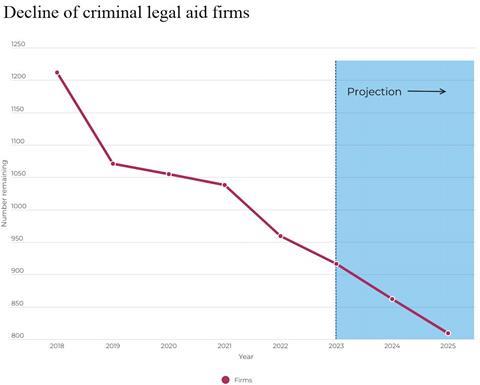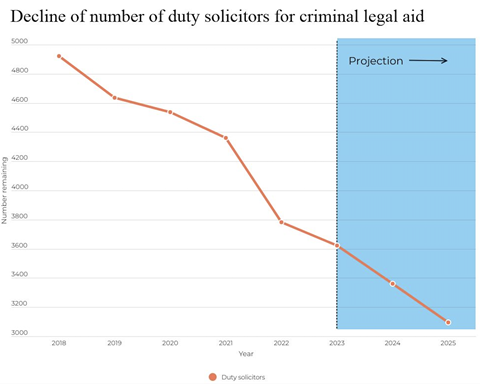The Law Society accused lord chancellor Dominic Raab of delivering a fatal blow to the criminal legal aid sector today by confirming a real-terms pay cut for solicitors – and warned that industrial action could now be looming.
Chancery Lane was responding to the government’s final response to the Bellamy review, which the Ministry of Justice declared heralds the biggest pay rise for criminal legal aid lawyers in decades.
The independent review, published nearly a year ago, recommended an immediate 15% uplift in fees. However, today’s announcement states that solicitor firms will see a total fee increase of around 11%.
Society president Lubna Shuja said: ‘Dominic Raab has made the wrong decision in not implementing the immediate 15% criminal legal aid rate rise for solicitors. The independent review recommended this a year ago as a bare minimum to prevent the criminal defence sector from collapsing. Instead, he is imposing a real-terms cut on fees that have been frozen since the 1990s.’
Shuja said the Bellamy review was the last hope that the Ministry of Justice would take the criminal justice crisis seriously and ensure the future of criminal defence practice remained viable. ‘Instead, Raab has thrown down a gauntlet to the profession,’ she said.
‘This reckless decision not only puts many of our members’ futures in jeopardy, it is likely to prove to be a fatal blow to a criminal justice system that used to be the envy of the world.’

Chancery Lane analysis suggests the number of duty solicitors will fall by another 19% by 2025 and the number of firms doing criminal legal aid will fall by 16%.
‘Our warning to those entering the profession, and considering a career in criminal defence practice, is that given the current situation with criminal legal aid, it is highly unlikely that you will be able to generate a reasonable professional income from this work,’ Shuja said.
‘Solicitors are under a professional obligation to make sure they manage risks to the financial stability and business viability of their practices.
‘It will be for each firm to make its own assessment as to its own individual circumstances. For many firms, continuing with a criminal defence practice in the absence of the basic funding Bellamy identified as essential for sustainability may be incompatible with their professional obligations. Having seen that direct action gets results, the response from some of our members may be to resort to disruptive tactics.’

More worrying than any disruption caused by short-term action was the continued loss of criminal defence solicitors, she continued.
‘This will get even worse across more areas of England and Wales. It will be far more costly to fix if we get that far. We are still exploring options for saving the system, including a legal challenge of the decision.’
Today’s announcement from the ministry states that an extra £138m will be spent on legal aid. Bellamy recommended a minimum £135m a year to nurse the sector back to health.

The ministry said £16m will raise the lowest fees payable to solicitors representing clients in police stations and marks the first step towards simplifying and improving fee schemes over the next three years.
‘Currently, fixed fees do not differ between case complexity, so a lawyer spending 20 minutes on a shoplifting case and four hours on a murder trial would likely receive the same fixed fee for both jobs,’ the ministry said.
‘The restructure will standardise payments to distinguish between these cases, paying a different lower or higher standard fee to reflect the hours of work done. By increasing the lowest fees in the system, the government will boost solicitor pay packets and overall funding for police station work will rise by 30%.’
In 2024, the government will bring forward proposals to reform the litigators graduated fee scheme.
Proposals will include a new way to calculate payments reflecting the type of offence, trial outcome and length, and the amount of evidence in each case – rather than the current system, which is mainly based on the number of papers served to the prosecution ‘regardless of if these are ever read and how much time was involved in preparing them’.
The ministry pointed out the latest measures follow the £54m deal agreed in October to end the criminal bar's strike, of which £19m was earmarked for solicitors.
This article is now closed for comment.



























30 Readers' comments